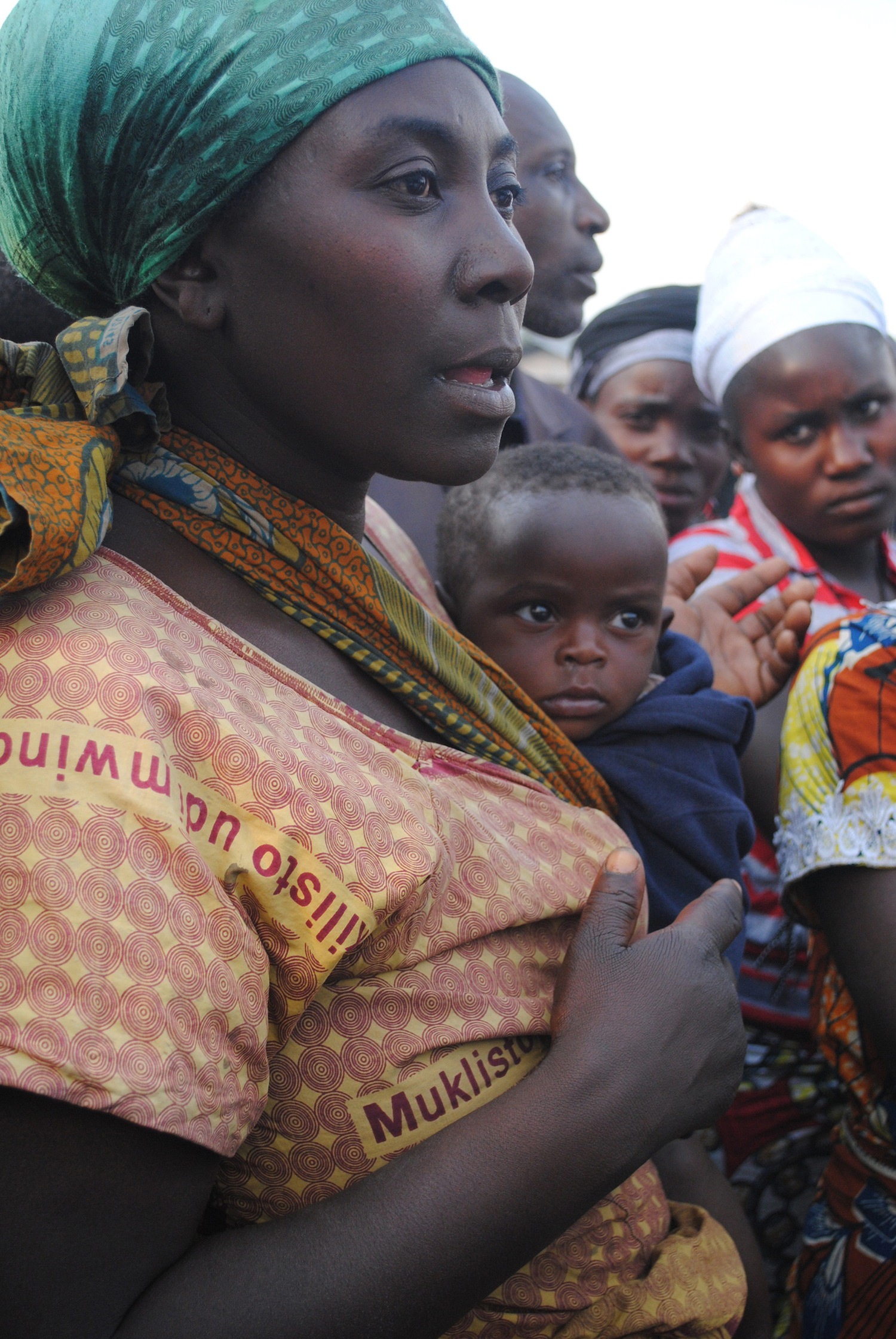Goma, Democratic Republic of the Congo – Rukimba Furaha fled her home and fields in the village of Kabuya in North Kivu province of the Democratic Republic of the Congo (DRC), out of fear for the safety of her eight children.
Her husband had left home several days earlier to avoid being forcibly recruited into the rebel army. Because of the haste of their flight they were unable to bring with them any food or other possessions.
They fled as an outbreak of armed conflict and population displacement once again is bringing widespread human suffering to the eastern provinces of DRC.
Since April of this year, more than 200,000 people have fled their villages and fields in the region, bringing the total number of internally displaced people in DRC to more than 2 million.
Between 30,000-40,000 of the displaced have become refugees in neighboring Rwanda and Uganda, but the vast majority, including Furaha’s family, has joined other people either in overcrowded camps in North or South Kivu, or with nearby host families. Many are hesitant to go far from their home villages, because harvest time is approaching and they fear their crops will be lost.
Furaha’s eldest child, Mbatse Dorika, is only 10 years old. Together with her younger siblings she walked more than 37 miles from Kabuya to Kibati, near the provincial capital of Goma, where the family found refuge in a local primary school.
The school has no water, sanitary facilities are severely overtaxed, and as of mid-July, no emergency assistance had arrived. Seven or eight families sleep in each small classroom of the school, with only rearranged student desks providing privacy between them.
On July 15, Mennonite Central Committee (MCC) staff and emergency services staff of the Church of Christ of Congo (ECC), an MCC partner for more than 15 years, visited Kibati. In addition to Furaha’s family, several hundred others – many of them small children – had arrived the week before after walking for three days from their villages in the middle of the current conflict.
“I was deeply affected by the lack of resources to meet basic human needs, such as food and water,” Ruth Keidel Clemens, program director for MCC U.S., reported after the visit. “Many of the children appeared to have medical needs with no means to address them. We observed traumatized and exhausted families. These are some of the visible signs of a forgotten war that continues to uproot and kill thousands of people in eastern Congo.”
The ECC emergency evaluation team identified more than 5,500 households in Kibati and three other locations within the conflict zone in need of emergency assistance with shelter, food, water, sanitation and household items. Their report will serve as the basis for an emergency response from MCC.
In other camps for people displaced by violence, MCC provided tarps for 400 families and paid school fees for 300 children earlier this year. MCC is currently preparing a large emergency food assistance project in both South and North Kivu, which will provide assistance for 1,000 families.
MCC U.S. Washington Office has also issued an action alert, asking constituents to email or call President Barak Obama, urging him to take action that would address root causes of ongoing violence in Eastern Congo. Visit the MCC Action Alert to learn more.
Since 1994, when several million Rwandans fled their country in the wake of the Rwandan genocide, eastern Congo has suffered from recurrent conflict involving national armies from DRC and neighboring countries as well as a wide variety of local and regional rebel groups. The latest fighting began in April 2012, when a group of Congolese army officers mutinied and rallied a rebel army, known as M23, which has since engaged the Congolese army and attacked civilian villages.
The causes of the conflicts in eastern Congo are a complex mixture of local, regional and national concerns involving land, minerals, ethnicity and politics. Refugees and internally displaced people are the most vulnerable victims of the clashes, though the entire population of the region suffers greatly from the insecurity and trauma of continuing warfare.
By now, Furaha fears that her fields, which were nearly ready for harvest when she fled, have been stripped bare by rebel soldiers and that her livestock have been taken and her house looted.
International distribution of a Mennonite Central Committee release
Tim Lind is an MCC representative in Democratic Republic of Congo with his spouse, Suzanne Lind. They are from Three Rivers, Mich.
